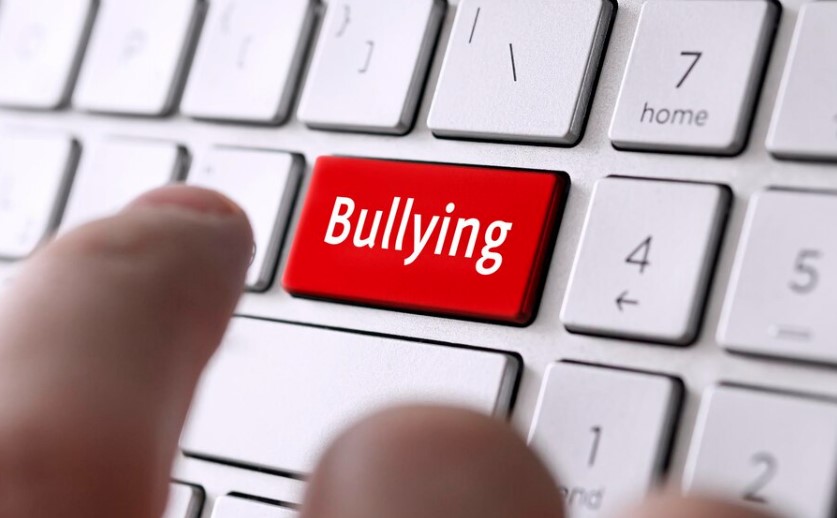Cyberbullying is an alarming global issue that has only worsened over the years with the impressive yet detrimental advancements of the digital era. Additionally, it is prevalently happening on social media. The perpetrators of bullying harass, humiliate, and intimidate their victims based on race, religion, personality, and identity, among others. The victims are often left psychologically, emotionally, and even physically distressed.
But what can you do if you are the one under attack? Keep reading to find out.
Why Is Cyberbullying A Crisis?
In recent years, there have been countless reports of heart-breaking online oppression. Sad statistics of suicide, mainly among teens, prove a lot more needs to be done. A recent DataProt report shows that almost 12 in every 100,000 teen suicide cases are cyberbullying-related.
While not enough effective measures have been put in place by social media companies to curb this, there are cautionary measures social media users can take to control online harassment. For example, knowing the don’ts when dealing with a bullying case online is essential. Here are the top ones to keep in mind:
Respond
Don’t feed the trolls. Bullies are known to feed off people’s attention. Therefore, starve them of the energy to hurl insults and humiliate you further by not responding to their provocations. A show of lack of interest kills their intentions mercilessly. To do this, avoid any engagement, block, hide or delete the comments if possible.
React
Whenever you try to respond to an oppressor by “giving them a taste of their own medicine,” you risk breaking the rules of most social media platforms. Also, do not create pseudo accounts to push your bullies around on social media for revenge.
Stalk Or Follow Them
Cyberbullying hurts and may leave you obsessed over the incident and the aggressor. Following them on any of the platforms or sending a friend request is not an option. Some victims are so intimidated that they want to find their bully and desire them to experience the same. However, this may lead to even more serious consequences, as this creates a closer connection with them. For example, in rare but likely scenarios, with your address, the bully can attack you physically.
React With Physical Aggression
Even though you may experience anger and restlessness, it is important to control yourself and not attack the person oppressing you physically. To begin with, it is unlawful, and physical aggression may have a fatal ending to either of you.
Hush It Up
By keeping quiet about the incident, you empower the aggressor and make other people fear them. Furthermore, you miss out on the possibility of getting support. Keeping quiet also makes it difficult for the authorities or social media platforms to deal with this or identify the perpetrators. It is often said that most online bullying incidents go unreported, leading to a vicious cycle of intimidation and abuse of personal freedom.
It’s also necessary to know who stands behind the mean messages sent to you. Usually, teasers don’t hide and express their opinion openly (in comments, for example). But if they hide under a fake name, it would be more difficult to track them down. In this case, try looking for any additional information, such as a phone number, address, or relatives. If you found their:
Phone number: Call or send them a message and tell them about how you’re feeling when they’re teasing you. You can also turn for help to PhoneHistory, a free reverse phone lookup service with more than 500 million U.S. phone numbers, to find out more about the caller.
Address: If things go too far and the messages become too frequent, visiting the person bullying you can bring positive results. There’s no need to fight, confront, or yell. Just calmly talk to the person and explain that their actions are too damaging for your mental health.
Relatives: One of the most effective ways is to talk to the person’s relatives. Tell them how the person harassing you behaves and explain that it’s inappropriate. If they are good people, they will find a solution to help you.
Self-Harm
As discussed above, the consequences of online bullying can be deadly. However, it is important to understand that the actions and projections of bullies do not reflect who you are. Also, understand that even though bullying may leave you dejected and humiliated, you can heal and overcome it with time. Therefore, find your support network, for example, your family and friends, and talk about what you’re going through.
If you don’t feel comfortable talking to friends or family, find a qualified therapist or psychologist for support.
Share The Content
For your well-being, avoid sharing the content sent to you by the bully to blackmail you. This is because:
- You make things worse by sharing personal information.
- Sharing the content gives it more attention, thus satisfying the bully and encouraging them to do more.
- You may open yourself up to attacks from more bullies.
- It might be illegal to share such content, and you might get charged.
The only time it’s okay to share such content is when you’re filing a report with relevant authorities or seeking a second opinion from people close to you.
Self-Blame
The repercussions of cyberbullying may leave you with low self-esteem, blaming yourself, and feeling guilty and ashamed. However, always remember that online harassment has nothing to do with you, only the aggressor and their malicious intentions. To put it into perspective, some of the nicest and most harmless people, like minors, continuously get bullied by strangers on social media. Therefore, stop self-blaming and start seeking help.
Detach Yourself From People
When going through these trying times, moving in with a family member or friend for support until recovery is best. Keeping your thoughts to yourself will prevent trusted people from monitoring your progress. The more you talk to other people, the better. Being alone is not the best option during such times, as every person needs support in difficult situations.
Ignore Your Feelings
People react to cyberbullying differently. Some might deal with it quicker than others. However, ignoring your feelings altogether is dangerous. The consequences of ignoring your feelings range from random and unexpected emotional outbursts to anxiety and depression. Furthermore, ignoring your feelings doesn’t solve anything; Instead, it postpones the problem, leaving you stuck in the past. Thwarting your feelings also makes you overlook that bullying is wrong and emotionally draining, hence failing to take appropriate action.
Conclusion
While social media companies struggle to establish effective measures to curb cyberbullying, users face different dangers, not knowing what to do and what not to do. Online bullying causes panic and fear and can ignite all the wrong reactions. For example, reacting with anger can significantly escalate the matter. Therefore, understanding the don’ts of dealing with the situation helps manage the problem better.
Most importantly, don’t suffer in silence. Report the incident and talk to your support network. Also, remember to control your emotions and avoid confrontations with the bully.
Read Also:






![How to Rebuild Trust in a Relationship [According to Experts]](https://www.rslonline.com/wp-content/uploads/2024/12/How-to-Rebuild-Trust-in-a-Relationship-According-to-Experts-2-100x91.jpg)
![How to Fix a Broken Relationship [Expert’s Advice You Need to Read]](https://www.rslonline.com/wp-content/uploads/2024/12/How-to-Fix-a-Broken-Relationship-Experts-Advice-You-Need-to-Read-100x91.jpg)




















